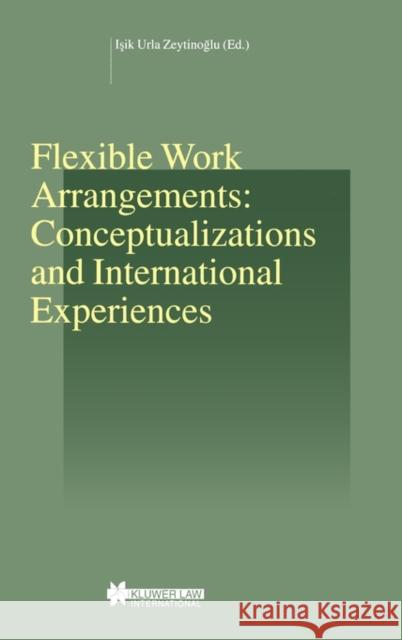Flexible Work Arrangements: Conceptualizations and International Experiences: Conceptualizations and International Experiences » książka
Flexible Work Arrangements: Conceptualizations and International Experiences: Conceptualizations and International Experiences
ISBN-13: 9789041119476 / Angielski / Twarda / 2008 / 298 str.
Flexible Work Arrangements: Conceptualizations and International Experiences: Conceptualizations and International Experiences
ISBN-13: 9789041119476 / Angielski / Twarda / 2008 / 298 str.
(netto: 1187,74 VAT: 5%)
Najniższa cena z 30 dni: 1202,55
ok. 16-18 dni roboczych
Bez gwarancji dostawy przed świętami
Darmowa dostawa!
In the world of work as it exists today, the old standards of fixed hours and location have been substantially weakened. Most employers, in fact, prefer to maintain a flexible system of work arrangements that gives them more control over rate of production, assignment of tasks, and economic circumstances. The global development of these new and extensive conditions of employment variously characterized as nonstandard, alternative, peripheral, contingent, or atypical has reached a point at which its significance for both employers and employees (as well as for society in general) can be fruitfully analyzed. Such analysis is the purpose of this book. Twenty-six scholars present findings from a wide range of national experiences, including those of Australia, Canada, Finland, Germany, Italy, The Netherlands, Sweden, the United Kingdom, and the United States. Although the bulk of the study is empirical, the conceptual approach with which the book opens pervades the entire analysis, so that important questions such as the following are raised frequently in differing contexts: Do organizations send mixed signals about flextime to their professional employees? What if anything compensates for the virtual elimination of "slack time" in the skilled labour market? Are flexible staffing arrangements inherently discriminatory? Do local managers tend to implement organizational strategic visions of good working life in a way that merely creates new compromises for their subordinates? How do non-permanent workers balance anxiety and freedom? Have flexible work arrangements affected traditional patterns of gender discrimination? Does "nonstandard" often mean "substandard"? Flexible Work Arrangements can be seen as a culmination of a trend among labour relations professionals that examines the effect of flexible work arrangements on individuals' career, family, health, and well-being, as well as effects on the workplace and the society. The direct result of research findings presented at the European Regional Congress of the International Industrial Relations Association held at Oslo in June 2001, through its rigorous research and incisive comparative detail, it will be of great value to policymakers, employers, and unions, as well as to scholars in the field.











